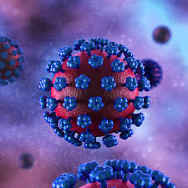HEALTH

UK RETURNEE AND 97 OTHERS SUCCUMB TO LASSA FEVER ACROSS 14 NIGERIAN STATES.
A 31-year-old physician who tested positive for Lassa fever after returning from the United Kingdom has been confirmed dead, according to the Nigeria Centre for Disease Control and Prevention (NCDC).
In a public advisory signed by the NCDC Director General, Jide Idris, it was reported that the late physician was among 98 fatalities recorded across 14 Nigerian states as of March 2, 2025. This was out of 535 confirmed Lassa fever cases from 2,728 suspected infections.
The statement reads: “On March 5, 2025, the Nigeria Centre for Disease Control and Prevention was notified of a confirmed Lassa fever case by the Ondo State Ministry of Health.
“The patient, a 31-year-old physician, was treated at a private health facility in Ondo State after returning from a trip abroad (UK).
“The individual departed Nigeria on February 19, 2025, and returned on February 27, 2025.
“Samples were collected late on Friday, February 28, 2025, on suspicion of Lassa fever, but unfortunately, the patient passed away in the early hours of Saturday, March 1, 2025.”
"Laboratory tests confirmed the diagnosis of Lassa fever through PCR testing on Tuesday, March 4, 2025.
"The patient was reported to have visited his fiancée in Edo State, as well as family and friends, before traveling."
The agency further stated that the Ondo State Ministry of Health has commenced contact tracing and line listing of individuals who may have been exposed to the confirmed case to prevent further spread of the disease.
"All necessary national response structures have been activated to ensure all potential contacts are identified and monitored.
"Port Health Services have been informed to assist with contact tracing, line listing, and strengthening surveillance at entry and exit points. Relevant details, including the patient’s biodata and flight information, have been shared.
"Information has also been communicated to all relevant authorities in compliance with the International Health Regulations (2005), and contact tracing efforts are ongoing in the UK."
The NCDC noted that while Lassa fever cases occur throughout the year, transmission peaks typically between October and May. The agency also reminded Nigerians that Lassa fever is an acute viral hemorrhagic illness caused by the Lassa virus.
The primary carrier of the virus is the multimammate rat, also known as the African rat, although other rodents can also serve as carriers.
"As of Epidemiological Week 9 (February 24 to March 2, 2025), Nigeria has recorded 2,728 suspected cases, 535 confirmed cases, and 98 deaths across 14 states, with a case fatality rate of 18.3%.
"Five states account for 91% of confirmed cases: Ondo (31%), Bauchi (24%), Edo (17%), Taraba (16%), and Ebonyi (3%).
"Ten local government areas make up 68% of confirmed cases: Owo, Akure South, Etsako West, Kirfi, Akoko South-West, Bali, Esan North-East, Bauchi, Toro, and Jalingo."
Lassa fever spreads through direct contact with the urine, feces, saliva, or blood of infected rodents, as well as by consuming food or drinks contaminated with these bodily fluids. The virus can also be transmitted through contact with contaminated objects, household items, or surfaces.
Additionally, person-to-person transmission can occur through direct contact with the blood, urine, feces, vomit, or other bodily fluids of an infected individual, especially in healthcare settings where infection prevention and control measures are inadequate.
"This represents a significant development in our ongoing coverage of current events."— Editorial Board









